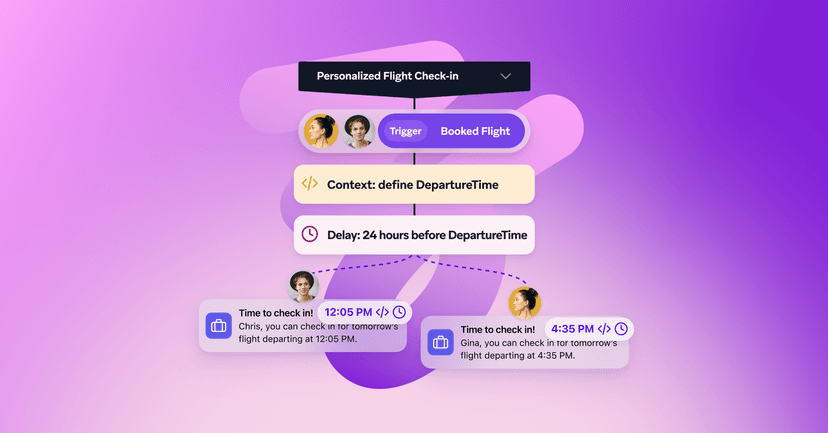Texas Senate Bill 140: What it means for your business
Published on September 09, 2025/Last edited on September 09, 2025/6 min read


Lauren Conrad
Associate Director, Legal, Braze, BrazeOver the past decade, marketers around the world have been grappling with the rise of a new generation of privacy and customer messaging laws that have the potential to impact their business. Now there is a new Texas law, Senate Bill 140 (SB 140), effective September 1, 2025, and it may impact Braze customers who send messages via SMS/MMS/RCS.
This new law expands Texas’s existing telemarketing rules to apply to more types of digital communication, with serious penalties for brands that fail to comply.
What you need to know about SB 140
This new update expands the existing Texas telemarketing law to cover mobile messages—including SMS, MMS, and RCS—sent from businesses operating out of Texas or to a Texas consumer. The changes are designed to address the evolving landscape of digital communication and create significant new risks for non-compliance, including enhanced penalties and a private right of action for consumers.
Specifically, this law dictates that brands:
- Register as a telephone solicitor with the Texas Secretary of State, pay a $200 fee and post a $10,000 security bond. Registration must be renewed annually.
- Collect prior express written consent before sending any marketing texts.
- Include an opt-out mechanism in text messages, and honor opt outs immediately.
- Keep quiet hours between the hours of 9:00 pm–9:00 am from Monday to Saturday, or from 9:00 pm–12:00 pm on Sundays (Texas local time).
- Maintain records of consents, opt-out requests, and message logs.
SB 140 also makes it easier for consumers to file a private right of action by avoiding existing procedural requirements that are currently in place, and creating new rights of action.
This law may not apply to everyone who sends mobile messages from their Texas-based business, or to consumers based in Texas, so you should check with your legal counsel to determine if it applies to the messages you are sending. Some exemptions (each subject to satisfying specified conditions) include :
- Messages sent to current or former customers.
- Messages sent by or on behalf of a 501(c)(3) nonprofit organization or an educational institution.
- Messages sent by publicly traded corporations, supervised financial institutions, or other businesses regulated by state or federal agencies.
How Braze can help
Braze provides a robust platform that can help you meet the key requirements of SB 140. Our features are designed to allow you to not only send powerful mobile messages but also to create the necessary auditable record to protect your business.
- Maintain records of consents and opt-outs: SB 140 requires businesses to maintain a verifiable record of when and how a user consented to receive messages. Our platform provides the tools to build an immutable audit trail.
- Braze Currents: For a definitive, defensible record, we recommend using Braze Currents. This feature exports a real-time stream of all user events—including opt-in and opt-out requests—to your data warehouse (e.g. Snowflake, BigQuery, or Amazon S3). Currents provides a timestamped, tamper-proof record of every event, which can be used to prove consent in the event of an inquiry.
- Opt-Out Keywords: Braze will process opt-out keywords automatically and update the subscription group. Braze also allows you to create additional custom opt-out keywords. The Braze “fuzzy opt-out” feature attempts to recognize inbound messages that do not match an opt-out keyword, but indicate opt-out intent.
- Maintain message logs: The law also requires maintaining a log of messages sent. This is especially important for proving that your messages included an opt-out mechanism and adhered to quiet hours.
- Message Archiving: Our Message Archiving feature creates a user-specific record of every message sent, including the final rendered message with all personalized Liquid content. This record helps demonstrate what was sent to a specific user and when.
- Campaign Details API: As a supplement, you can use our /campaigns/details API to pull a log of all messages sent from a given campaign, providing a high-level record of message volume. (Please note, while this gives you the general message, it may not be especially helpful if there's a lot of Liquid or Content Blocks in the message.)
- Adhere to Quiet Hours: The Braze platform's Quiet Hours feature can help you comply with quiet hours requirements.
- Customizable Quiet Hours: Our Quiet Hours feature allows you to set a customizable window where messages will not be attempted to be sent.
Best practices to prepare for SB 140
To ensure your business is prepared for the requirements of SB 140 and beyond, we recommend taking the following actions:
- Consult with your legal counsel: This is the most important step. We recommend you review your messaging practices with your own counsel to confirm if the law applies to you and to get advice on your specific use cases.
- Verify consent practices: Review the opt-in language and process on all of your SMS/MMS/RCS entry points (e.g. web forms, SMS keywords). Ensure you are collecting a clear, documented "prior express written consent" that meets the law's requirements, and that the consent is specific to the types of messages you plan to send.
- Enable Braze Currents: If you are not already doing so, enable Braze Currents to create an immutable, real-time export of all user events. This provides a robust way to maintain a verifiable record of consent and opt-out requests.
- Enable Message Archiving: To maintain a complete message log, we strongly recommend enabling the Message Archiving feature for all SMS campaigns and Canvases.
- Configure Quiet Hours: Review your existing campaigns and update them to use the Quiet Hours feature. Configure the time window based on the Texas-specific local time. The Braze platform can automatically handle time zone conversions, supporting compliance for all Texas recipients.
- Create a Texas segment: Use Braze segmentation tools to create a user segment of all consumers in Texas (you could filter on Texas area codes, zip codes, or other custom filters to achieve this). This will allow you to easily target or exclude likely Texas-based users from campaigns, giving you more granular control to support compliance.
Please note, this information is not intended to be, nor is it legal advice. Only your own counsel can advise you on how the law applies to you and your business. We recommend you consult your own legal counsel to determine how this law may apply to your business and any actions you may need to take.
Related Tags
Be Absolutely Engaging.™
Sign up for regular updates from Braze.
Related Content
 Article13 min read
Article13 min readBraze vs Salesforce: Which customer engagement platform is right for your business?
February 19, 2026 Article18 min read
Article18 min readBraze vs Adobe: Which customer engagement platform is right for your brand?
February 19, 2026 Article7 min read
Article7 min readEvery journey needs the right (Canvas) Context
February 19, 2026